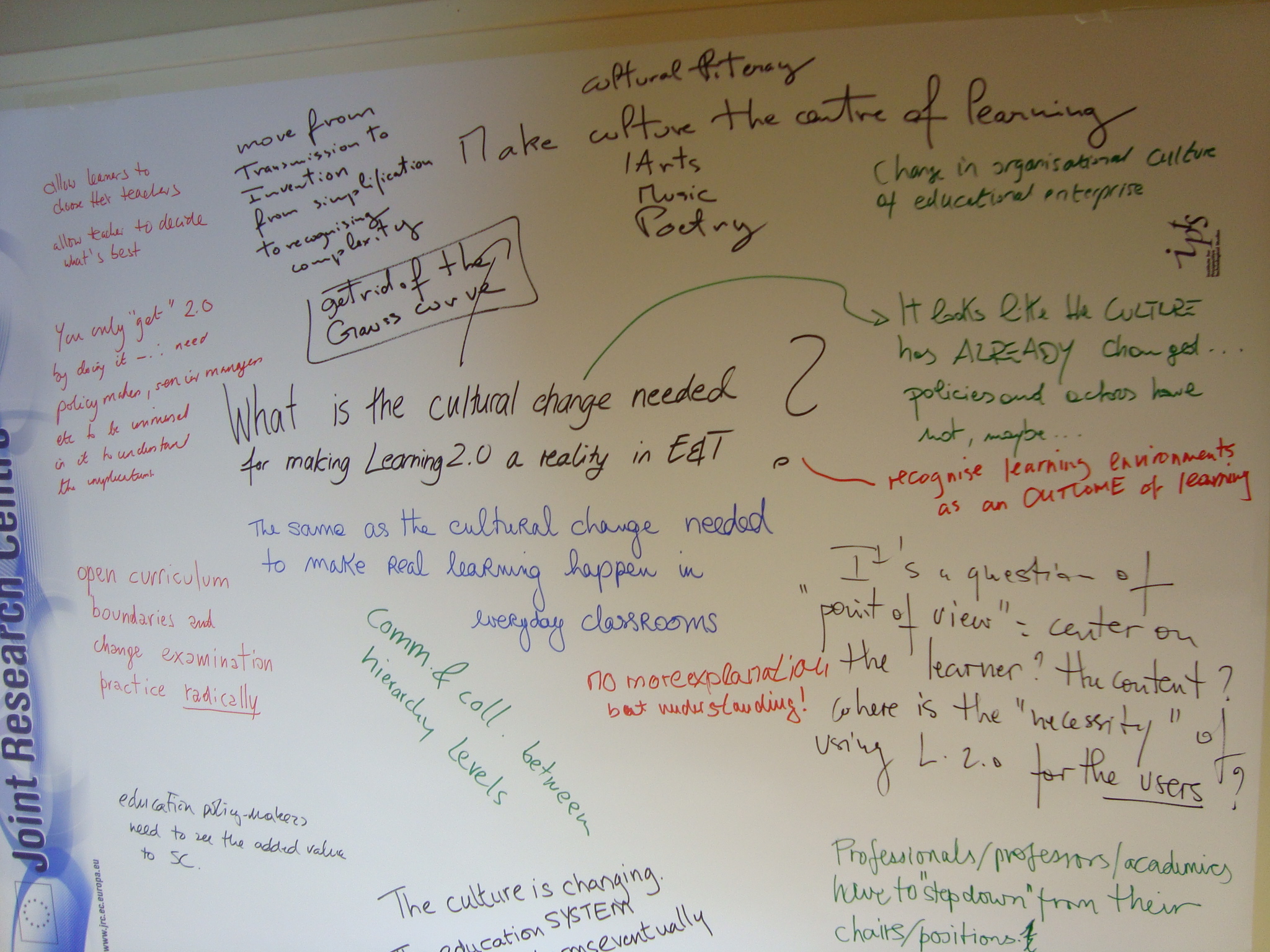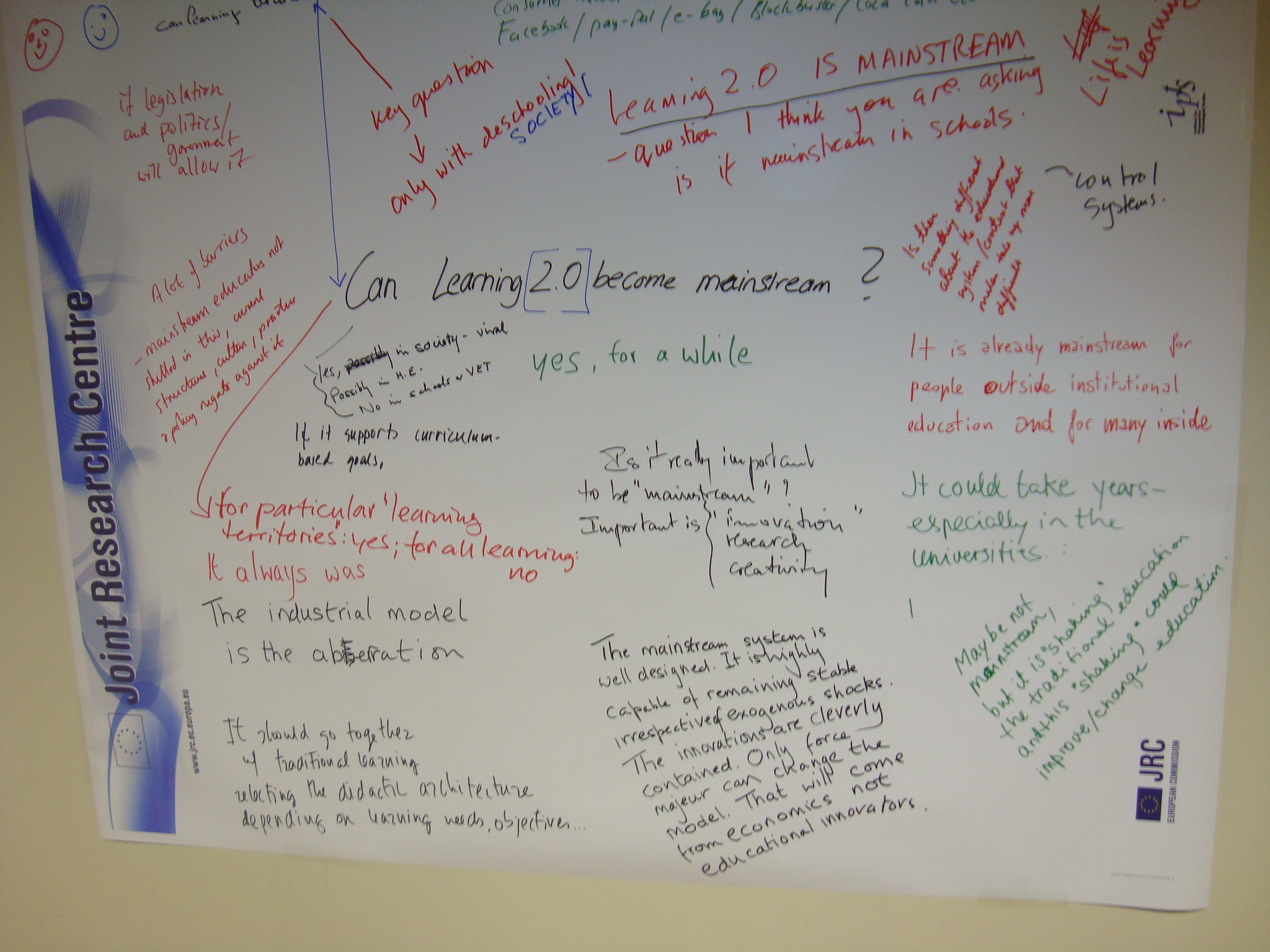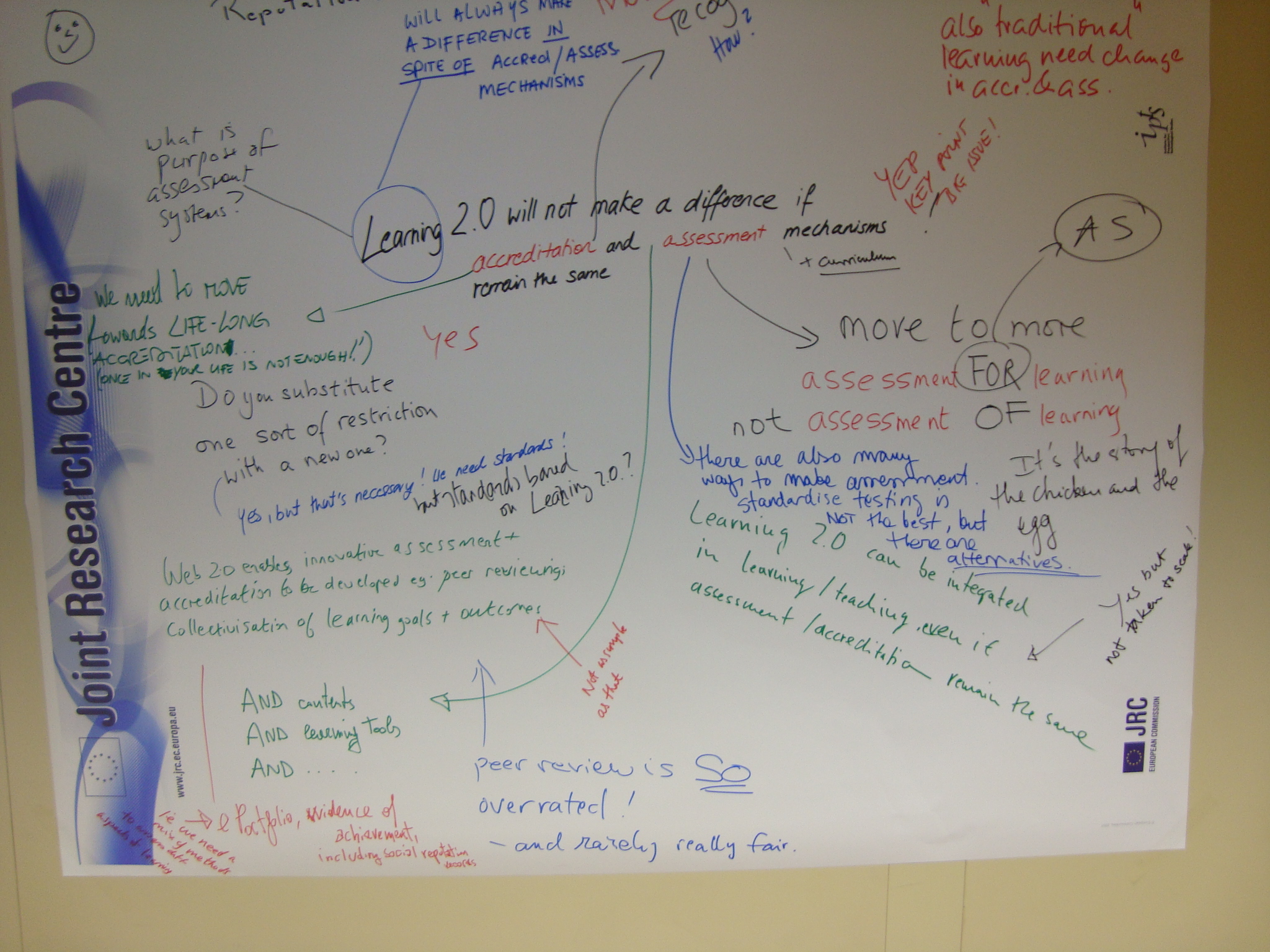More about learning 2.0
Another post on the IPTS seminar on Learning 2.0 in Seville. This workshop was interesting becuase it brought togther researchers and practitioners from all over Europe. And, somewhat to my surpise, there was a fair degree of consensus. We agreed social software provided many opportunties for creating, raher than passively consuming learning. We agreed that learnng opportunities were being developed outside the classroom. We even agreed that the locus of control was switching from institutions to the learners and that this might well be a good thing. We agreed we were moving towards individual learning pathways and that learners needed to be supported to finding their pathways.
We agreed that the context of learning was important. Mobile learning would become increasingly important with the development of context sensitive devices. (Also see Serge Ravet’s post on User Generated Content or User Generated Contexts).
But there were also limits to the consensus. Whilst there appeared agreement on new roles for teachers, no-one was sure what that role was?
Much of the discussion centred on the scaffolding of learning. How much support did leaners need and how much of that support would come from teachers?
Neither were participants agreed on the future role of institutions. More critically, was Learning 2.0 something which happened outside the school, and had only a limited impact on institutional practice, or did it pose a fundamental challenge for the future of schooling?
There was even greater disagreement over curriculum. Should there be a curriculum for basic skill and knowledge that everyone should learn? Did learners need a basic grounding in their subject before theyc oudl develop their own learning pathways? Who should define such a curriculum? What was the role of ‘experts’ and who were they anyway?
And perhaps the greatest disagreement was over assessment and accreditation. Many of us felt that we needed to move towards community based formative assessment. Employers, we said, would be more interested in what people were able to do than formal certicates. Others, pointing to occupations such as doctors and plumbers felt there should be some form of standards against which people should be assessed and accredited.
A final comment on the form of the project. Although the work is about Learning 2.0 the present form of the work is decidedly Research 1.0. This research is important enough that it needs to be opened out to the community. It seems a wiki is being d veloped and when it is up I will blog here about it. In the meantime here are some of the photos of the flip charts used for brainstorming around different issues at the workshop. I will pass on any comments on this post to the project organisers.






